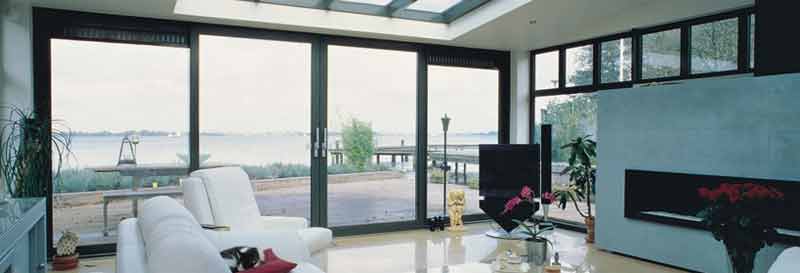All Categories
Featured
Table of Contents
Twinglaze® Double Glaze Specification Act - Vic in Tapping Western Australia
That window can transmit more solar heat in winter season than in summer. A west-facing window on a summer season's afternoon has an angle of incidence from near 0 approximately 30 with a big reliable area of solar radiation. A north-facing window, in summer season, has a high angle of occurrence and a low efficient location of solar radiation, so can transmit less heat than a west-facing one.

You can rapidly and easily enhance the thermal performance of your house by changing your windows. There are thousands of types of glass and frames to pick from.
Enjoy Your Summer More With Double Glazed Windows in Bassendean WA
There are various types of glass items to pick from. Single glazing uses a single pane of glass. Single glazing with clear glass is not extremely effective when it pertains to heat loss or gain. To improve efficiency, you can use single glazing with a more energy-efficient type of glass such as low emissivity (low-e) glass.
Several layers can be assembled with sealed cavities in between each sheet of glass. IGUs generally use much better energy efficiency than single glazing, due to the fact that they send less energy. The energy performance of IGUs likewise depends on: the properties of each layer of glass. Various glass types (for instance, clear and low-e glass) can be created in an IGU.
Double Glazed Windows Sydney in East Perth Western Australia

IGU cavities can be filled with air or a more inert, low-conductivity gas such as argon the width of the cavity. Broader cavities supply lower (much better) U values, with 12mm normally accepted as the preferred space how well the cavity is sealed.
If argon is installed to the cavity in location of air, wetness is reliably left out the level of desiccant (drying agent). The spacer (metal or polymer strip) that separates the glass layers includes a desiccant to soak up any moisture. Insufficient desiccant might trigger wetness to condense on the glass surface in cold conditions, minimizing thermal efficiency.
Energy Efficient Windows: Choose The Best Option For Your ... in Canning Vale Western Australia
IGUs can provide better energy performance for all environments, specifically in heated and air-conditioned houses. Cross-section information of single, double and triple-glazing systems Low emissivity glass (frequently referred to as low-e glass) reduces heat transfer. Low-e glass might be either high or low transmission: High transmission low-e glass has a finishing that allows daylight from the sun to enter your home to achieve excellent solar heat gain, but lowers the quantity of the long wavelength infrared heat that can get away back through the window.
Low-e glass has either a pyrolytic covering or a vacuum-deposited thin film metal finish. Pyrolytic coatings are resilient and can be utilized for any glazing; vacuum-deposited finishings are soft and are just used within IGUs. Low-e finishes can significantly enhance both U worth and SHGC; nevertheless, they need to be used correctly or they will either degrade or stop working to perform as required.
Double Glazing - Windows - Doors in Bibra Lake Perth
Low-e coatings can be used in mix with clear, toned or reflective glass. Low-e coverings on glazing can decrease heat transfer where needed Image: Department of Market, Science, Energy and Resources Toned glass has actually colouring ingredients consisted of during manufacture. It is available in numerous colours, usually bronze, grey, blue and green.
Table of Contents
Latest Posts
Energy Efficient Windows At Everest in Lakes Perth
Single Vs Double Vs Triple - Which Window Is Right For Your ... in South Fremantle Western Australia
How Are Double Glazed Windows More Energy Efficient? in Safety Bay Western Australia
More
Latest Posts
Energy Efficient Windows At Everest in Lakes Perth
Single Vs Double Vs Triple - Which Window Is Right For Your ... in South Fremantle Western Australia
How Are Double Glazed Windows More Energy Efficient? in Safety Bay Western Australia